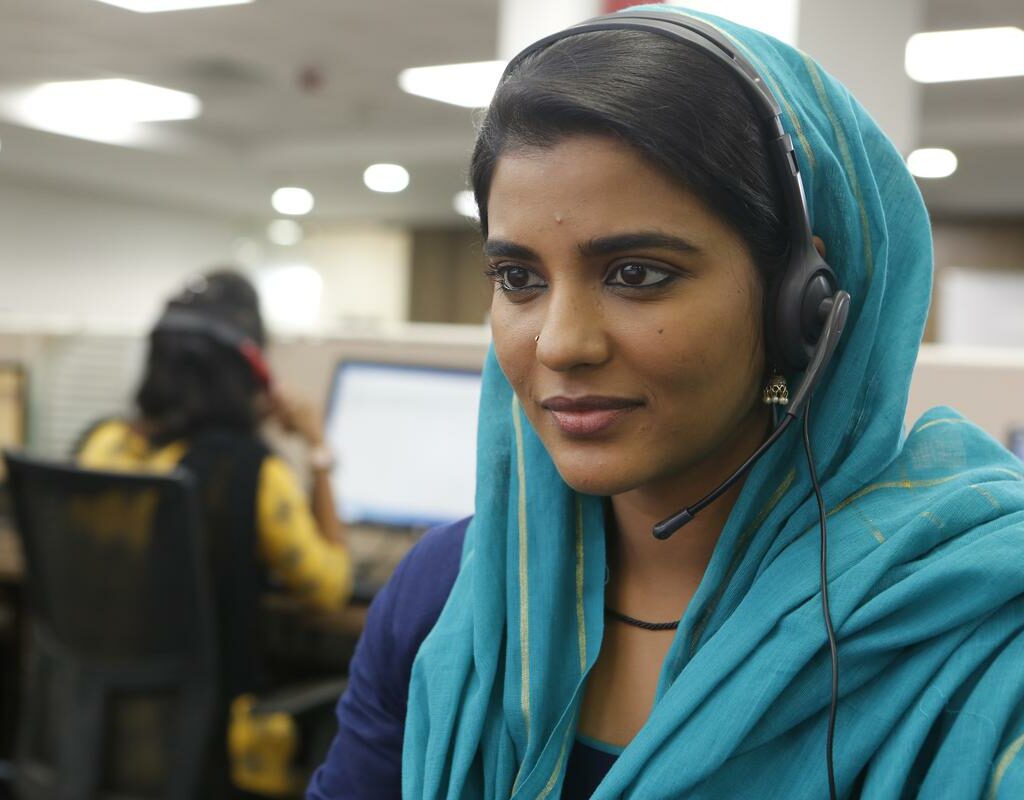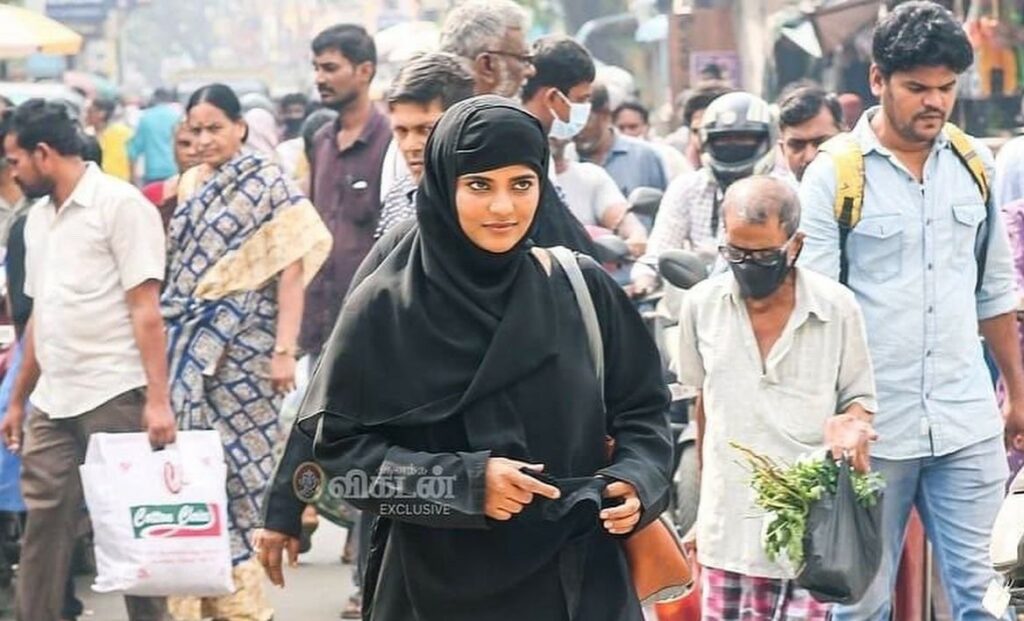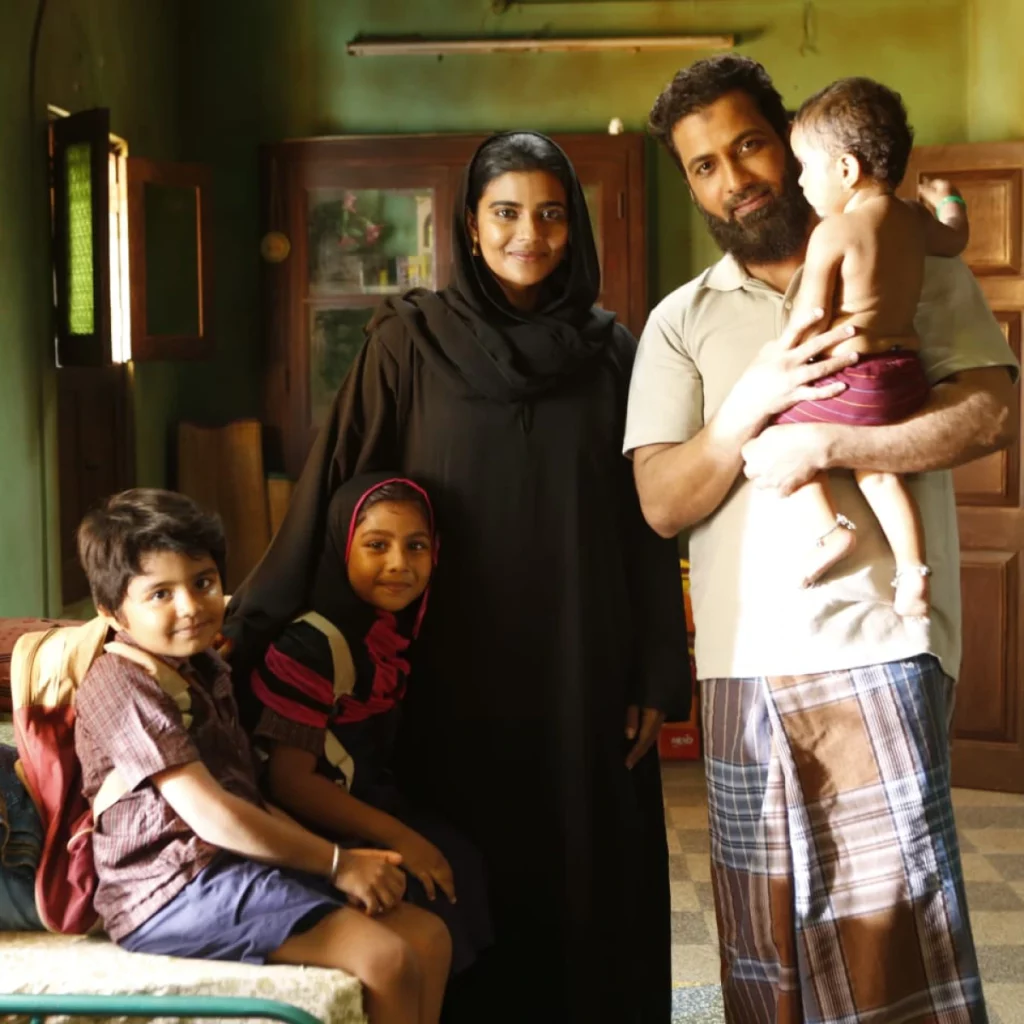‘Farhana’: Shaping a Muslim Woman in Unprecedented Settings

Review by MUHAMMED NOUSHAD; originally published in Maktoob Media.
Tamil movie industry doesn’t bring many Muslim heroes and heroines; hence, a hijabi woman as the title protagonist in a story unfolding in a non-community setting, definitely arouses curiosity, particularly in India’s alarmingly Islamophobic environment. That’s what Farhana does, and concomitantly, there was an unfortunate controversy prior to the release of the movie, triggered by a few Muslim organisations in Tamil Nadu, alleging that the movie depicts the community in a bad light. Alongside, there was the lead actor Aishwarya Rajesh advocating the need for more Muslim women representation in mainstream cinema and the media featuring her research on Muslim rituals and practices for the protagonist role she essayed. And director Nelson is dealing with the subject of sexuality packaged as a thriller. Enough reasons to watch. Gladly, the movie is not a disappointment in terms of representation and aesthetics, to a large extent. At least it stays away from fooling around Muslim sexuality – often, stereotyping Muslim sexuality is a tool of otherisation.

In the beginning, we meet Farhana at an impoverished house in Chennai’s Triplicane; badly in need of employment as her husband’s meagre revenue doesn’t suffice enough to educate her children and cure their diseases. However, the children seem to be treated as a pretext to create an easy excuse for her search for tough jobs – beyond that, no bonds registered, nor even a proper conversation between the young mother and her kids, one of them even sick and suffering.
Notwithstanding, Farhana’s struggles are convincing – though the scene where her daughter is humiliated in school for not paying fees is sloppily written. Farhana manages to find a job at a telecommunication company, and with training and connections, in order to obtain more money to take home, she pushes herself upward and eventually gets promoted to a friendship chat service – read sex chat room – though she wasn’t aware of the true nature of the job. The contrast is striking: a pious Muslim woman answering the cringy questions of sex-starved strange men over the phone. Although she impulsively decides to quit and return to the previous job, the office refuses and, later, we find her developing a platonic relationship with an unknown man, who, unlike other callers, is not into embarrassing sex talk.

In the first call itself, this caller reveals that he is feeling low and just looking for someone to talk to. Full of empathy and kindness, Farhana tries her best to reassure him. They feel connected and he keeps calling her every day, always through the official channel, as the company doesn’t allow giving away one’s true identity, address and phone number. In spite of a supportive husband, Farhana falls for him, wait for his calls, misses him and works out solutions for his problems. So far so good. Perfect for an indie movie setting and we could have got an amazing movie if the makers had worked on this impossible love story.
However, the story takes a dramatic twist and the movie a commercial turn: the stranger friend turns out to be a psychopath overnight and starts chasing Farhana down with a pledge to destroy her life and family – for what, we are not sure? There the movie loses its charming track, though still it does engage us till the climax thanks to the performance and the angle of suspense.
In terms of representation, the movie does a decent job. Typically, on Indian screens, Muslim husbands are creepy, toxic, misogynistic and lustful. For a change, you have Jithin Ramesh playing a sober, loving and supportive husband. At the same time, Frahana’s own dad repeats the cliched role of a conservative old man objecting to her freedom and work life. However, for relief, he does approve of her job and accomplishments towards the end of the story.
The makers have paid close attention to the psyche of a pious Muslim woman in multiple ways; there are even occasional references to Muslim traditional values. Aishwarya Rajesh does a remarkable job, with her intense and sensitive portrayal of the protagonist: the naivety, innocence and straightforwardness of this strong young mother rest safe on her shoulders.
Courtesy: Maktoob Media: https://maktoobmedia.com/more/film-and-tv/farhana-shaping-a-muslim-woman-in-unprecedented-settings/